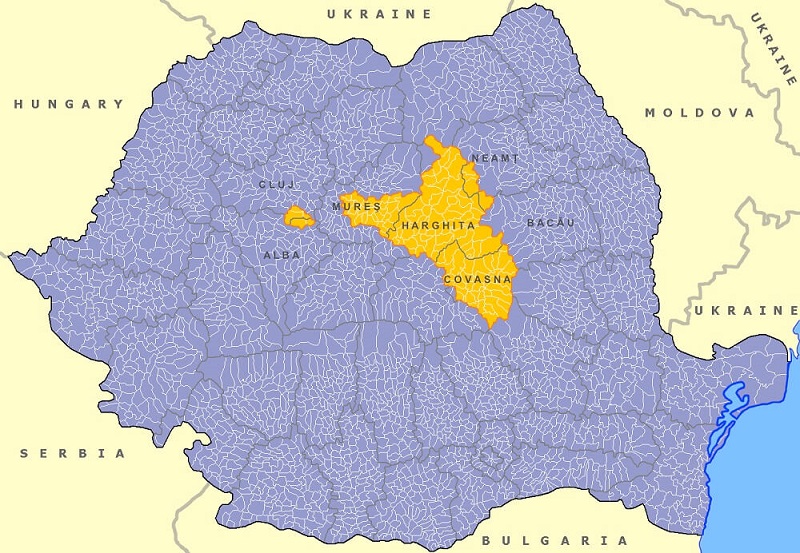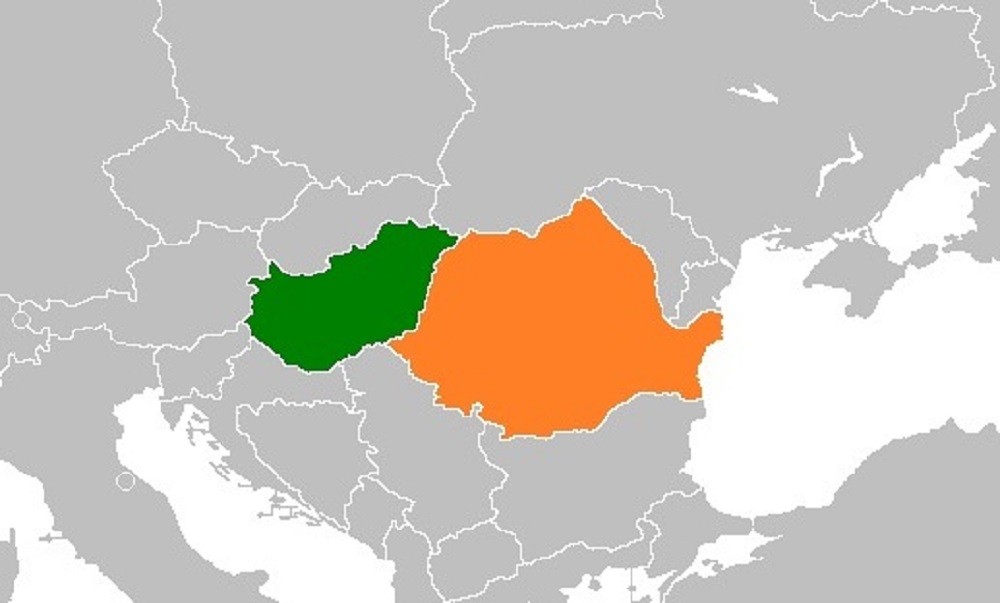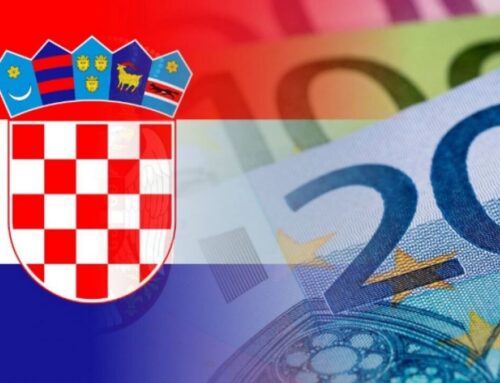While the diplomatic relations between Romania and Hungary have never been excellent, a series of rapidly successive events made the tension between these two, mount to new highs in the last couple of weeks. The reasons behind this spike in antagonism can be attributed, firstly, to the brand-new political manoeuvre known as mask diplomacy and, secondly, to the same old autonomy debate that has been plaguing the Romanian-Hungarian relation for the last half a century.
The New Hungarian Mask Diplomacy

Although mask and sanitary equipment donation should be a simple form of humanitarian help in the present time of crisis, the allocation of such vital equipment became a diplomatic tool and its implementation a political move that is bound to raise questions and cause different reactions. This was the case when the Romanian Ambassador to Budapest defended a Hungarian member of Parliament who inquired about the mask diplomacy of the Hungarian Government.
On the 20th April 2020, the MP Timea Szalbó from the opposition party Dialogue for Hungary (Parbeszed Magyarorszagert) held a speech in the Hungarian Parliament and demanded an answer to the question why the Hungarian Government is sending masks and other sanitary equipment to the Hungarian minority in Transylvania, Romania, when there is a shortage of such governmental help in the Hungarian hospitals. It should be noted that, since mid-March, the Hungarian Government has offered to send approximately 600.000 Chinese-bought masks and protection equipment to the Hungarian communities in Transylvania, Vojvodina, Subcarpathian Ukraine, Slovakia, Slovenia and Croatia[1].
Nevertheless, Timea Szalbo was not able to finalize her inquiry as other MPs begun to loudly clap, making it impossible for her to fully present her argument. Following this incident, Mrs Szalbo was personally attacked and heavily criticized in the pro-government media.
However, the Romanian Ambassador to Budapest, Marius Lazurca choose to defend Mrs. Szalbo. The Ambassador expressed his support for the MP in a WhatsApp group whose members are other ambassadors to the Hungarian Republic. The ambassador also wrote the MP a letter expressing his solidarity[2].
The situation escalated when the Hungarian Foreign Affairs Minister, Péter Szijjártó, criticized the action of the Romanian Ambassador. In a post on his official Facebook page, which Mr Szijjártó begun by stating that “It’s impossible to get lower than this: the Romanian Ambassador defended Timea Szabo” was followed by “The lying hysteria of the Romanian ambassador is shocking”. In his public post, Mr Szijjártó accused both the Romanian Ambassador and Hungarian opposition of being against the Hungarian minority of Romania. The Minister defended the program of the Hungarian Government by saying that the Hungarians who live in other states are still part of the Hungarian nation and, as such, they must be supported by their government[3].
Following the attack from the Hungarian Foreign Minister, the Romanian Ambassador responded that his support came as a result of the personal attacks that Mrs Timea Szalbo was facing, and not because of her stance in the Parliament. A noticeable response, due to its complete absence, was the one of the Romanian Government, which chose not to address it at all. An explanation for this lack of reaction came from the Romania’s former chief negotiator with the EU, Vasile Pușcaș, who stated that Romanian Government was trying to avoid an escalation of the situation by staying silent[4].
The Same Old Autonomy Appeal

Even if the Romanian authorities sought to descale the situation in order to normalize dialogue with their Budapest counterpart, it seemed that the situation was bound to go downhill following the resurgence of an autonomy project on the political agenda. The Székely Land is a Hungarian majority region in central Romania with a history of autonomy initiatives that have been successful so far only in creating nationwide tensions and further straining the Romanian-Hungarian diplomatic relations.
On the 29th of April 2020, a bill which envisaged the allocation of autonomy to this region was rejected by the Romanian Senate. The bill had unexpectedly arrived to the Senate, after it was tacitly adopted, without debate, by the Romanian Chamber of Deputies. The bill was able to get to the Senate as it did not reach the agenda of the Chamber of Deputies, and, as such, it couldn’t be rejected or adopted.
This situation turned into a controversy of national and international proportion when the current Romanian President Klaus Iohannis addressed the situation. In a polemic speech, the President stated that the bill was able to pass the Chamber of Deputies as a result of the common effort of the PSD party and the Hungarian minority UDMR party, which tried to, according to him, “give Transylvania to the Hungarians”.
The speech of the Romanian President caused negative reactions both at home and abroad. The most consequential responses were the ones of the Hungarian Foreign Affairs Minister and the Hungarian Prime Minister. Minister Szijjártó stated that it was an “uncivilized statement that incites to hatred” and underlined that the Hungarian Government wishes to maintain a good relation with Romania, but this is made difficult by the fact that “in the last days, the representatives of the Romanian state, one after the other, made statements that expressly make it difficult to maintain good neighbourly relations”[5].
Au contraire, the Prime Minister Viktor Orban adopted a more reserved stance and affirmed that he would have to further clarify the situation with Bucharest before he makes any official statements. According to Mr Orban, the response will vary depending if this is a “provocation, an accident or a new national strategy of the Romanian Government”. In any case, the Prime Minister assures that if the situation demands it, he “will pick up the thrown glove”, nevertheless, for now, he doesn’t recommend “leaning towards it.”[6]
Sources:
„Guvernul Ungariei trimite teste și măști ungurilor din afara granițelor”, Europa Liberă România, https://romania.europalibera.org/a/guvernul-ungariei-trimite-teste-și-măști-ungurilor-din-afara-granițelor/30547538.html, data accesării 7 mai 2020.
„Ministrul de externe al Ungariei: Atitudinea ambasadorului României e stupefiantă, isterică și mincinoasă”, https://www.digi24.ro/stiri/externe/ministrul-de-externe-al-ungariei-atitudinea-ambasadorului-romaniei-e-stupefianta-isterica-si-mincinoasa-1297522, data accesării 7 mai 2020.
„Ministrul ungar de externe: ”Este șocantă isteria mincinoasă a ambasadorului român. Maghiarii din afară sunt parte a națiunii maghiare””, Europa Liberă România, https://romania.europalibera.org/a/ministrul-ungar-de-externe-este-șocantă-isteria-mincinoasă-a-ambasadorului-român-maghiarii-din-afară-sunt-parte-a-națiunii-maghiare-/30577126.html, data accesării 7 mai 2020.
„Tensiuni diplomatice, după ajutorul medical din Ungaria”, Cotidianul RO, https://www.cotidianul.ro/tensiuni-diplomatice-dupa-ajutorul-medical-din-ungaria/, data accesării 6 mai 2020.
„Ungaria îl acuză pe Klaus Iohannis că «incită la ură». Reacția ministrului de externe ungar la scandalul autonomiei Ținutului Secuiesc”, https://www.digi24.ro/stiri/externe/ungaria-il-acuza-pe-klaus-iohannis-ca-incita-la-ura-reactia-ministrului-de-externe-ungar-la-scandalul-autonomiei-tinutului-secuiesc-1299507, data accesării 9 mai 2020.
„Reacţia lui Viktor Orban la declaraţiile preşedintelui Iohannis despre ”vânzarea Ardealului””, Mediafax.ro, https://www.mediafax.ro/politic/reactia-lui-viktor-orban-la-declaratiile-presedintelui-iohannis-despre-vanzarea-ardealului-19110563, data accesării 10 mai 2020.
[1] „Guvernul Ungariei trimite teste și măști ungurilor din afara granițelor”, Europa Liberă România, https://romania.europalibera.org/a/guvernul-ungariei-trimite-teste-și-măști-ungurilor-din-afara-granițelor/30547538.html, data accesării 7 mai 2020.
[2] „Ministrul de externe al Ungariei: Atitudinea ambasadorului României e stupefiantă, isterică și mincinoasă”, https://www.digi24.ro/stiri/externe/ministrul-de-externe-al-ungariei-atitudinea-ambasadorului-romaniei-e-stupefianta-isterica-si-mincinoasa-1297522, data accesării 7 mai 2020.
[3] „Ministrul ungar de externe: ”Este șocantă isteria mincinoasă a ambasadorului român. Maghiarii din afară sunt parte a națiunii maghiare””, Europa Liberă România, https://romania.europalibera.org/a/ministrul-ungar-de-externe-este-șocantă-isteria-mincinoasă-a-ambasadorului-român-maghiarii-din-afară-sunt-parte-a-națiunii-maghiare-/30577126.html, data accesării 7 mai 2020.
[4] „Tensiuni diplomatice, după ajutorul medical din Ungaria”, Cotidianul RO, https://www.cotidianul.ro/tensiuni-diplomatice-dupa-ajutorul-medical-din-ungaria/, data accesării 6 mai 2020.
[5] „Ungaria îl acuză pe Klaus Iohannis că «incită la ură». Reacția ministrului de externe ungar la scandalul autonomiei Ținutului Secuiesc”, https://www.digi24.ro/stiri/externe/ungaria-il-acuza-pe-klaus-iohannis-ca-incita-la-ura-reactia-ministrului-de-externe-ungar-la-scandalul-autonomiei-tinutului-secuiesc-1299507, data accesării 9 mai 2020.
[6] „Reacţia lui Viktor Orban la declaraţiile preşedintelui Iohannis despre ”vânzarea Ardealului””, Mediafax.ro, https://www.mediafax.ro/politic/reactia-lui-viktor-orban-la-declaratiile-presedintelui-iohannis-despre-vanzarea-ardealului-19110563, data accesării 10 mai 2020.
Picture sources: euronews.com & en.wikipedia.org




